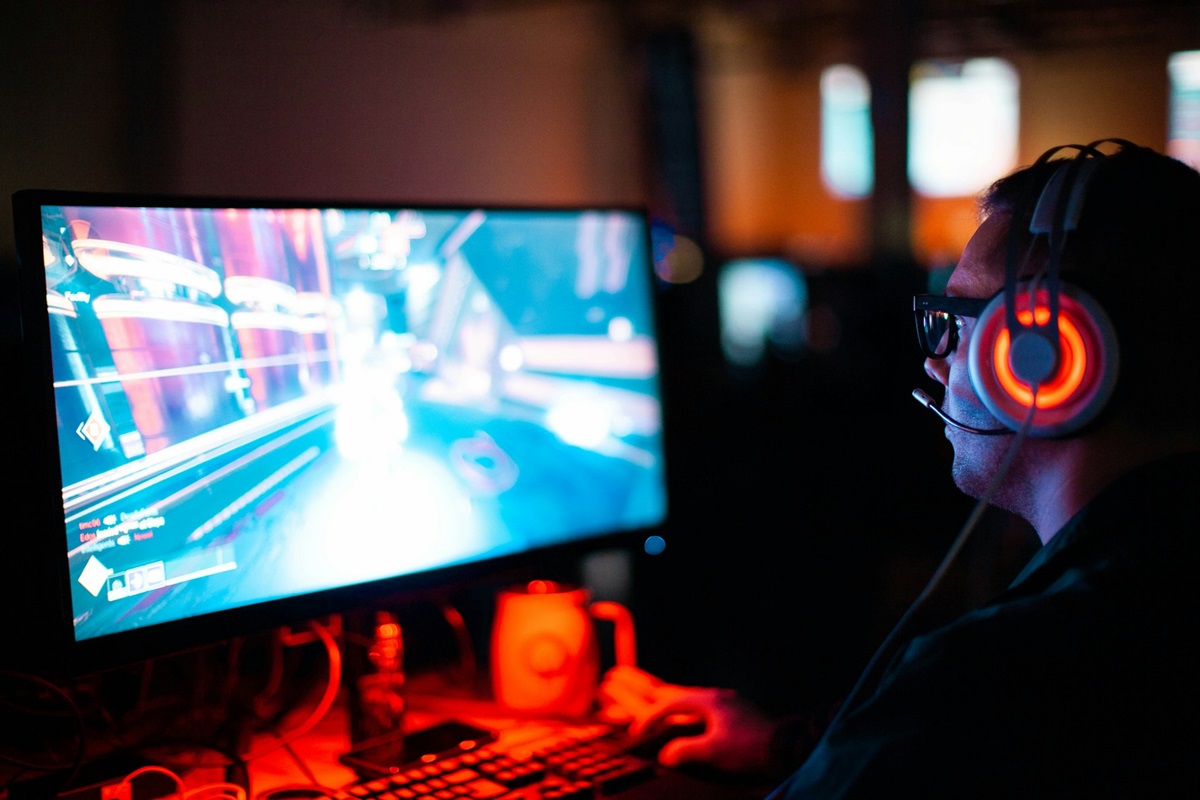The process of implementing generative artificial intelligence, which is currently underway at the global level and demonstrates the tendency of gradual sustainable scaling, is likely to strengthen and probably will increase and diversify the possibilities of the video game industry in Hong Kong.

The mentioned opinion regarding the impact of AI is dominant among the delegates of the Digital Entertainment Leadership Forum at tech hub Cyberport, which is taking place in Hong Kong this week. It is worth noting that the potential of machine intelligence in a certain sense is de facto a kind of acceleration and amplification platform for the entire digital reality system as a whole, regardless of the specific specifics of its separate segments. The integration of artificial intelligence into virtual functional environments increases productivity and contributes to the evolution of what can be called the semantic basis of virtual space.
Zhang Ji, a senior algorithm engineer at Alibaba Group Holding’s Institute for Intelligent Computing, says that there is currently a tendency for users to interact more and more actively with artificial intelligence. According to the expert, the corresponding process means the growing importance of such a direction in the gaming and entertainment industry as virtual characters. The appropriate statement was made at a panel discussion within the framework of the three-day forum, which concludes on Sunday, August 18. It is worth noting that scaling user interaction with artificial intelligence in a certain sense is natural from the point of view of the current state of this technology. AI is nowadays under active development. As technology evolves to improve existing features and add new ones, users are becoming more interested in interacting. Artificial intelligence has huge potential and significant development prospects, being, in fact, a new form of mind that operates in the virtual space. For this reason, user interest in AI is logical. It is worth noting that evolution as a factor in gaining consumers is a kind of relevant pattern for all technologies. not only for artificial intelligence. Any invention that demonstrates a specific positive result attracts attention. AI has already proven its impressive cognitive abilities.
Generative artificial intelligence is a set of algorithms that are used to create new content, including in forms such as audio, code, text, images, video, and simulations. From the perspective of the development of the gaming industry, such achievements in the form of digital products as OpenAI ChatGPT and Sora are of particular importance. The mentioned functional systems can become a kind of starting point for a new approach to content creation. In this case, it implies a change in the approach used by video game developers.
Zhang Ji says that in the past, users only had three to five rounds of conversation with artificial intelligence. The development of generative AI has significantly expanded the scope of relevant practice. Currently, users tend to have more than 100 rounds of conversation with artificial intelligence. In this case, statistical averages are meant. In the context of evaluating the development of generative AI as a factor impacting user interaction with advanced technology, attention should be paid to the special importance of long text prompts and high-bandwidth memory.
Zhang Ji stated that increasing the efficiency of artificial intelligence for the gaming industry means the ability to generate a lot of material and dialogue content. Also in this context, it was noted that the use of generative machine intelligence will allow companies to create new types of games that were unavailable in the past.
It is worth noting that the new opportunities provided by artificial intelligence will have a positive effect on Hong Kong both from a reputational point of view and in an economic sense. The use of AI by local game developers will have beneficial consequences. Likely, Hong Kong’s reputation as part of the Greater Bay Area will be strengthened in the sphere of entertainment based on artificial intelligence. Also, the development of the game industry will contribute to the economy growth.
Paul Chan Mo-po, the city’s Financial Secretary, said in his opening remarks at the forum that generative machine intelligence is reshaping game development. He also stated that artificial intelligence reduces costs and provides artists and innovators with the opportunity to create enriched, personalized, and immersive experiences for consumers. This opinion actually confirms the thesis that the impact of AI is multi-vector, but in the relevant context, the most important factors are the improvement of technical capabilities and a positive economic effect.
Paul Chan Mo-po also stated that the Hong Kong government actively supports the development of digital entertainment. In this context, he separately noted the Cyberport, which is home to more than 160 companies specializing in digital entertainment, more than 250 firms related to Web 3.0, and more than 200 startups, elaborating on artificial intelligence and involved in the big data sector.
Moreover, Paul Chan Mo-po said that building an AI Supercomputing Centre is currently underway in Hong Kong. According to him, the commissioning of the first phase of this facility is expected before the end of the current year. He also said that in the government budget for 2024, a new subsidy program was announced to support local universities, research institutes, and business enterprises in using the computing power of the mentioned center.
It is worth noting that the process of large-scale implementation of generative artificial intelligence tools and resources is gradually increasing the availability of advanced technological solutions. In the recent past, the mentioned tools and resources were available only to large companies operating in the gaming industry space. Currently, the capabilities of advanced technology are actively used by small firms and individual developers.
Warren Cho, worldwide gaming vertical leader at Microsoft, said in his keynote speech that artificial intelligence has democratized the elaboration of gaming. In this context, it was noted that the Microsoft Bing search engine, enhanced by ChatGPT, has already become a tool that is used in the process of creating 2D and 3D animation in the video game industry.
At the same time, it is worth paying attention to the fact that artificial intelligence, despite the significant positive effect already realized, has not yet become a kind of magic wand for the developers of the mentioned digital product. In the context of the current state of affairs, the actual problem is the high cost of deploying machine intelligence tools. For large companies, this economic aspect of using artificial intelligence is a task that can be solved without overexertion and without the need to sacrifice other directions of expenditure. However, for small game developers, the financial issue has become a kind of obstacle. Over time this difficult circumstance may cease to exist. The corresponding assumption is realistic from the point of view of a somewhat historical pattern, according to which technologies become more financially accessible as their distribution scales. The elementary principles of a market economy stipulate that goods made in larger quantities, or technological solutions operating in a wide space, are cheaper than products characterized by smaller manufacturing volumes.
Zhang Ji says that large language models can help increase productivity and creativity, but their cost is relatively high. It is worth noting that the mentioned models are a kind of technological platform for generative artificial intelligence services, among which, for example, ChatGPT. Zhang Ji says that the high cost was the reason that some enterprises decided to delay the introduction of artificial intelligence tools. It was also noted that Alibaba is currently making active efforts to make the use of machine intelligence more accessible in terms of the costs associated with the implementation of the relevant process. Within the framework of the mentioned efforts, there are already certain results. For example, this year Alibaba reduced the cost of its line of Tongyi Qianwen large language models. Developers from mainland China are already using these models for elaborating various novel games. Alibaba’s data indicates that the products of the mentioned line have been adopted by more than 90,000 corporate customers on the mainland.
In May, the specified company launched Qwen 2.5, the newest digital product within Tongyi Qianwen. The firm said that the model, which debuted in the spring, surpasses OpenAI’s GPT-4 in terms of efficiency in the context of language and creation capabilities. At the same time, it was noted that Qwen 2.5 is inferior to its competitors in categories such as knowledge, reasoning, and math. Alibaba presented Tongyi Qianwen in April 2023. In a sense, this product line was the company’s reaction to the growing popularity of artificial intelligence. In October, a new version of Tongyi Qianwen was presented, which differed from the previous one with improved features that improve the quality of solving tasks such as understanding complex instructions, copywriting, reasoning, and memorizing, among others.
Baidu is currently seeking to improve its understanding of what Hong Kong companies expect from artificial intelligence as a functional system. providing various technological capabilities. Nowadays, this company interacts with local firms to learn their needs. The corresponding statement was made by Shi Wei, Baidu’s general manager for Hong Kong and Macau, during a speech at a panel discussion within the framework of the three-day forum. Moreover, Baidu announced plans to open the center of large language models in the city.
Currently, artificial intelligence is actually shaping the space of new possibilities. It is worth noting that this technology has revolutionary potential in a certain sense. In the foreseeable future, artificial intelligence is highly likely to transform or, at least, make fundamental changes to the production process and workflows in various spheres of activity. Historical experience shows that such innovation has profound economic, political, social, and even cultural consequences. Also, the emergence of a new means of production may become the initial stage of the next era in the existence of human civilization in all dimensions of a given space of the collective being, which carries out translational movement in time.
Besides, in the context of the currently observed development of artificial intelligence, attention should be paid to the issue of cybersecurity, which has become more relevant. Like many other technologies, AI can be used within the framework of positive scenarios and to achieve what can be conditionally characterized as negative goals. For example, fraudsters have access to artificial intelligence technologies, which makes their activities more sophisticated, which complicates the process of detecting criminal operations in the virtual space. Against the background of this challenge, personal awareness of users is very important. For example, a query in an Internet search system, such as how to know if my camera is hacked, will allow anyone to receive information about signs of cyber threats. Relevant knowledge should be updated periodically because as technology develops, the activities of criminals seeking victims in the digital environment become more and more sophisticated. Moreover, artificial intelligence is currently being used to generate deepfakes. This content includes videos and audio containing an imitation of the voice and a kind of digital prototype of real people. Relevant materials are used to deceive to obtain illegal financial benefits or to manipulate public consciousness as part of efforts to promote certain narratives. Solutions are already being developed to counter this type of cybercrime. For example, the startup Reality Defender specializes in elaborating tools for detecting deepfakes. In October, this startup raised investment funds of $15 million.









